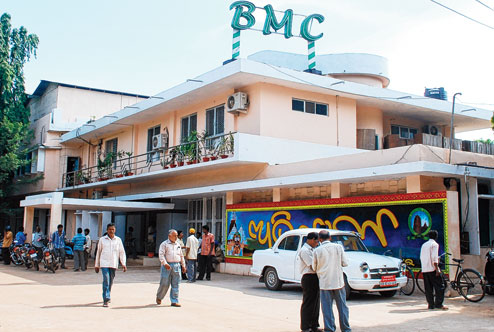Bhubaneswar: In a sorry state of affairs, an increase in the number of dog carcasses around the capital city has been reported indicating the civic authority’s lackadaisical approach to controlling the dog population under Animal Birth Control (ABC) programme.
According to sources at the Bhubaneswar Municipal Corporation (BMC), a total of 450 carcasses had been reported last month. Out of these, 227 are dog carcasses while the others were those of bigger animals like stray bulls.
These figures have raised questions about BMC’s dog sterilization and birth control policies since the carcasses were found in January and the last week of December – supposed to be the breeding season of strays.
“Winter seasons are one of the periods when dogs breed. These animals reproduce 5-7 litters at a time and grow depending on the food available around them. While survival of all the dogs in litter is highly unlikely due to natural selection, death of these animals after being run over by a bus or a car is highly disappointing,” said Biswa Mohanty, an animal expert here. Although no official survey is done, a report prepared by the Veterinary and Science Department in 2015 estimated the number of street dogs in the capital city to be around 40,000. These numbers were expected to rise as the city grows with a two-fold increase in the next 5 years.
In urban areas, the ABC programme is run by the municipal corporations to check the number of canines. Under this, all dogs within a community or region are sterilized and then released back in their territories.
However, like a blind dog in a meat market, the breeding has been rampant recently. Although the BMC had run intense programmes under ABC during the Hockey World Cup in 2018 with as many as 600 dogs getting sterilized a month, the campaign has lost its steam with only 100-200 dogs being neutered now.
Responding to this, Amulya Nayak who runs an NGO with the BMC said, “The process is a bit slower as we are a bit short on manpower. During the Men’s Hockey World Cup, we had four doctors with us but at present we have just one. There is indeed a need for mass sterilization campaigns in view of the increasing population of dogs.”
However, MK Sudarshan, President of Association for Prevention and Control of Rabies, says that ABC programmes have been unsuccessful in most parts of the country. “Under the ABC, any municipality needs to cover about 70% of stray dog population in a year. For this, they neither have enough fund or trained professionals to make it a success,” Sudarshan says.
Trilochan Sahoo, Veterinary Officer of the ABC programme, however, retorted that they have ‘sufficient funds and manpower’ to curb the birth rate. He stated that they had received Rs 4.5 lakhs last year under the ABC and the target was to sterilize 200-300 dogs a month. “Starting from next financial year we will be targeting sterilization of 500 dogs a month which may require a funding of Rs. 40 lakhs,” Sahoo added.
Apparently, the BMC’s presumptions of the issue have not gone down well with Sasmita, a dog lover. “The sight of a dog or pup splattered on the street is disturbing. I do not understand complex workings of the authorities but surely something must be done for these innocent animals that get killed in such brutal manner.”
Guv Vs Govt
The Supreme Court ruling on 8 April declaring as erroneous and illegal the action of Tamil Nadu Governor RN Ravi,...
Read more





































